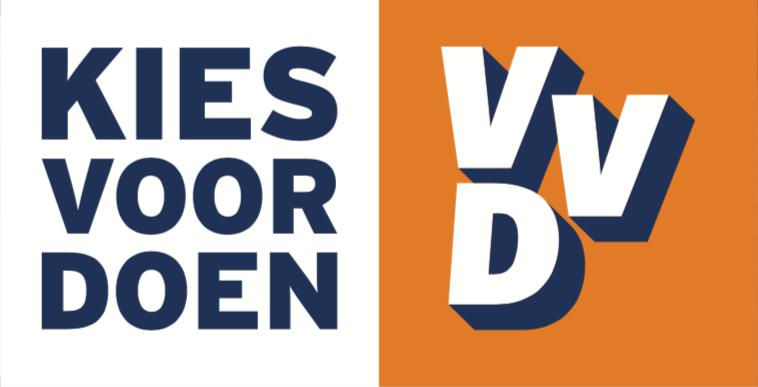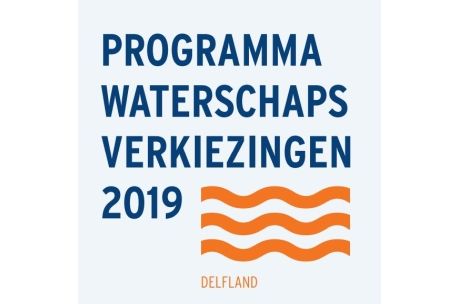Publicaties
In de afgelopen jaren heb ik meegewerkt aan een aantal publicaties. Hieronder een (niet volledig) overzicht:
Schuwer, Rober, Janssen, Ben; Van Valkenburg, Willem (2013). MOOCS: Trends and opportunities for higher education
In Trendrapport: Open Educational Resources 2013 (pagina 22 -27)
This article looks at massive open online courses (MOOCs) and the opportunities that they offer for higher education in the Netherlands. We look at what a MOOC actually is, the context of “open education”, and the discussion of the possibly disruptive impact of MOOCs on higher education.
Doove, John; Van Valkenburg, Willem (2012). Winst te behalen met learning analytics
In HO Magazine - september 2012: Special voor 25 jaar SURF (pagina 20 - 21), ISSN 1877-7597
Met het in kaart brengen van onder meer studiegedrag en studievoortgang van studenten en het analyseren van de kwaliteit van onderwijsmateriaal, digitale leer- en werkomgeving en toetsitems, kunnen hogescholen en universiteiten hun onderwijs verder verbeteren. Learning analytics kan daarmee bijdragen aan de kwaliteit van het onderwijs en maakt studiebegeleiding op maat mogelijk.
Schuwer, Robert; Wilson, Tina; Van Valkenburg, Willem et al. (2010). Production of OER, a Quest for Efficiency.
In Open Ed 2010. Barcelona: UOC, OU, BYU.
In most initiatives to publish Open Educational Resources (OER), the production of OER is the activity with the highest costs. Based on literature and personal experiences a list of relevant characteristics of production processes for OER are determined. Three cases are compared with each other on these characteristics. Most influence on costs are human costs and the type of OER created.
de Moel, P.J., de Moel, E.L., van Valkenburg, W.F., Verberk, J.Q.J.C. (2010) Expanding the usability of recorded lectures
Proceedings of IGIP-SEFI Conference, 19th - 22nd September 2010, Trnava, Slovakia
Recorded lectures are playing an increasingly pronounced role in modern academic education. This was demonstrated in a course at TU Delft with 550 students. Only around 15% opted to follow the lectures live in the lecture room, with its options for interactions with the lecturer. Another 15% preferred to follow the lectures either live via an internet connection or on demand later that day. Both of these groups followed the weekly scheduling of this course. The majority used the recorded lecture as an exam preparation aid. All lectures were viewed on demand some 300-400 times. A large part of these views occurred during the days preceding the exam.
Recorded lectures can be distributed via popular platforms such as iTunesU and YouTube EDU. The latter allows for online translated subtitles, which is considered a very useful tool for the international students at TU Delft. Future developments for recorded lectures were investigated in an MSc research project in Computer Science at University of Twente. It was shown that the word correctness of modern speech recognition is around 50%, which is insufficient for direct use as subtitling, but rather appropriate for search engines. A prototype for such a search engine over a full course has been developed based on lecture titles, chapter titles, slide data, transcripts, subtitles and speech recognition output. An online time framed discussion board was reviewed, showing that in these discussion boards? student-to-student interactions might be more intensive than student-lecturer interaction.
Introduction of recorded lectures allow for a much more flexible scheduling of courses, either multiple times a year, as well as in intensive short courses.
de Moel, P.J., de Moel, E.L., Valkenburg, W.F., Verberk, J.Q.J.C. (2010) Recorded Lectures for International Curriculum Exchange in Water Management
Proceedings of Edulearn Conference, 5th-7th July 2010, Barcelona, Spain
Recorded lectures are playing an increasingly pronounced role in modern academic education. This was demonstrated in a course at TU Delft with 550 students. Only around 15% opted to follow the lectures live in the lecture room, with its options for interactions with the lecturer. Another 15% preferred to follow the lectures either live via an internet connection or on demand later that day. Both of these groups followed the weekly scheduling of this course. The majority used the recorded lecture as an exam preparation aid. All lectures were viewed on demand some 300-400 times. A large part of these views occurred during the days preceding the exam.
Recorded lectures can be distributed via popular platforms such as iTunesU and YouTube EDU. The latter allows for online translated subtitles, which is considered a very useful tool for the international students at TU Delft.
Future developments for recorded lectures were investigated in an MSc research project in Computer Science at University of Twente. It was shown that the word correctness of modern speech recognition is around 50%, which is insufficient for direct use as subtitling, but rather appropriate for search engines. A prototype for such a search engine over a full course has been developed based on lecture titles, chapter titles, slide data, transcripts, subtitles and speech recognition output. An online time framed discussion board was reviewed, showing that in these discussion boards? student-to-student interactions might be more intensive than student-lecturer interaction.
Introduction of recorded lectures allow for a much more flexible scheduling of courses, either multiple times a year, as well as in intensive short courses.
The developments of recorded lectures at TU Delft show their large potential in international education.
van Valkenburg, W.F. (2010) Wiki voor samenwerkende onderzoekers in SSC-ICT TU Delft (2010). SSC-ICT en Onderzoek. Ondersteuning van wetenschappelijk onderzoek met ICT. TU Delft, Delft., pagina 22-23
In het onderzoek wordt samengewerkt. Of het nu met vakgroep collega?s is of met vakbroeders aan de andere kant van de wereld. In plaats van elkaar voortdurend e-mail toe te zenden met bijvoorbeeld aangepaste versies van documentatie, publicatie of rapport, is het veel gemakkelijker om een wiki in te zetten.
Groot Kormelink, J.B.J., van Valkenburg, W.F. Verberk, J.Q.J.C. (2009) TU Delft OpenCourseWare: from repository to community
Sefi 37th annual conference 1-4 juli 2009, Rotterdam, paper 139
Groot Kormelink, J.B.J., van Valkenburg, W.F. and Verberk, J.Q.J.C.(2008) TU Delft OpenCourseWare: from repository to community
The fifth Annual Open Education Conference Sept. 24-26, Logan (Utah) 2008
Jos Hamers, Willem van Valkenburg, Roderik van der Wilk & Eline Noorbergen Vergelijking van het Blackboard Content System en Harvest Road Hive ? E- merge publicatie (maart 2005).
Aan de hand van een aantal gebruikscases en een lijst met criteria worden twee LCMS-en met elkaar vergeleken.
Valkenburg, W.F., & Hamers, J.G.M. (2004). Learning Content Management en de kunst van de ordening. Delft: E-merge Consortium.
In dit rapport wordt een geordend overzicht gegeven van de verschillende types content management systemen en leercontent management systemen en worden hun voor- en nadelen aangegeven in relatie tot de doelstellingen van het E-merge consortium.
Veen, W., Valkenburg, W.F. van, Santema, S.C., Genang, R. (2002). The New Generation Working Force: The Homo Zappiens. In: Proceedings of E-Learn 2002. ISBN 1-880094- 46-0
Brakels, J. K., Daalen, C. E. van, Dik, W., Dopper, S. M., Lohman, F., Peppen, A. J. van, Peerdeman, S. A. G., Peet, D. J., Sjoer, E., Valkenburg, W. F. van, & Ven, M. J. J. M. van de (2002). Implementing ICT in education faculty wide. European Journal of Engineering Education, 27(1), 63-76
Ven, M. J. J. M. van de, Peerdeman, S. A. G., Peppen, A. J. van, & Valkenburg, W. F. van (2001). Implementing ICT in education: towards an implementation method. In: The impact of ICT on the curriculum, International Seminar on Information and Communication Technologies in Engineering Education (Galway, Ireland, 2-5-2001), SEFI, Brussels, Belgium, 2001, p. 53-63. ISBN: 2-87352-042-6, cat. c





